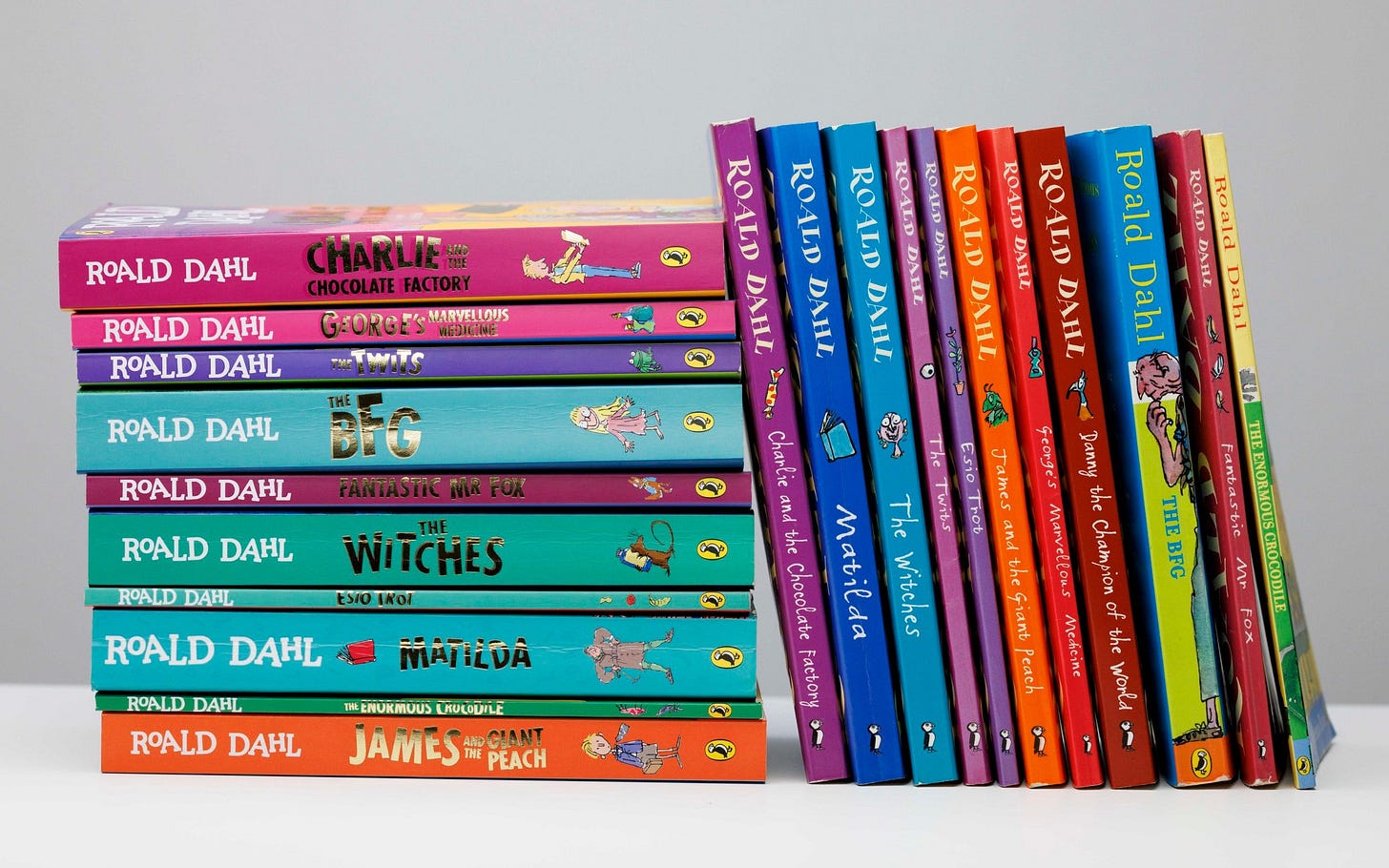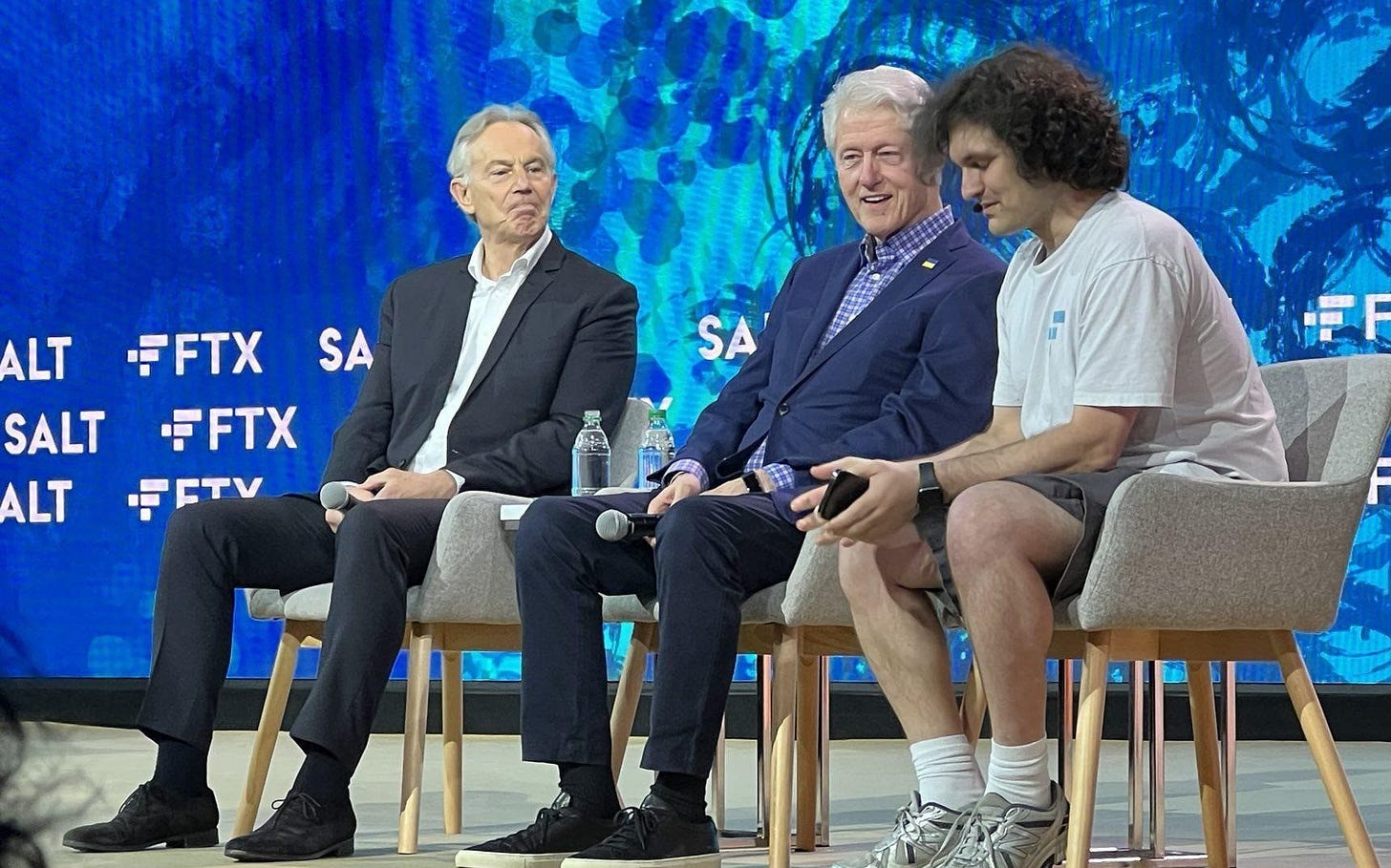Weekly Media Trends: Roald Dahl, Oscars, Angela Bassett & More!
Roald Dahl Freedom of Speech Debacle | Oscars Slap in Crisis Experts | Viral BAFTA Rap Bemuse Audience | Crypto Scammers in Parliament
Keep Dahl Weird
Nothing triggers the public conscience more than the powers that are messing with those parts of childhood that otherwise seem sacred. The works of eternally popular children's writer Roald Dahl were saved from what some might call censorship this week after publisher Puffin announced that new editions of Dahl's books had been passed through a sensitivity reader.
Inclusive Minds, a self-described "collaboration of consultants and campaigners with a passion for inclusion, diversity, equality and accessibility in children's literature", worked with the Roald Dahl Story Company to remove potentially offensive language from the books. August Gloop is now "enormous" instead of "fat", while Mrs Twit is "beastly" instead of "beastly and ugly." The adjective "weird" has also been removed from the description of an African language. The resulting furore had everyone from the Prime Minister to Philip Pullman weighing in.
A further measure of the announcement's far-reaching implications was the entrance of the Queen Consort into the discussion. At a reception to celebrate the second anniversary of her online book club, the Queen's Reading Room, Camilla addressed a room full of writers saying, "Please remain true to your calling, unimpeded by those who may wish to curb the freedom of your expression or impose limits on your imagination." This thinly veiled but incredibly rare royal interference into the so-called culture wars demonstrated what a nerve Puffin had struck by defacing this most British of institutions.
Any Dahl reader will know that part of the author's appeal to children is his lack of sanitisation when speaking to younger audiences. His books are gruesome, nightmare-inducing, unflinching and delicious. No amount of sensitivity screening is going to make The Witches less terrifying or Miss Trunchbull less ghastly. The issue here is less the appropriateness of certain words for our 2023 sensibilities but more that if we are going to trust children to read about death, violence, child abuse and crime (all of which feature in Dahl's works), then surely we can trust them to understand the changing nature of language and equality through history.
Oscars call in the Crisis Comms Experts
In a tremendous boon to our profession, no less prestigious an institution than the Academy of Motion Picture Arts and Sciences made public that its plan to avoid a repeat of Will Smith's infamous slap last year (or possibly Liam Payne's ensuing interview…) was to appoint a crisis management operation.
In an interview with TIME, Academy CEO Bill Kramer kindly laid out the basics of our humble profession to the world when revealing that the Academy had been ensconced in scenario planning, spokesperson, messaging and narrative training.
Sounds great, right?
The only issue is it's missing out a crucial step of this kind of crisis comms: prevention.
The strategy Kramer outlined is perfect for when a crisis is on its way and cannot be prevented, and the best case scenario is ensuring that the subject's side of the story is fairly represented in ensuing public and media fallout.
In short, if they knew that Will Smith was going to slap their host again this year but were powerless to stop him, they'd be sorted with this responsive strategy.
But, of course, that isn't the case. And in fact the crisis management team, assuming they know their stuff, is presumably pulling its collective hair out that Kramer's description of an entirely reactive plan to mitigate some unstoppable imagined crisis does not take into account the months they've spent heavily briefing key people, working on the layout of the venue, tinkering with seating plans, researching beefs – real and hypothetical - between potential protagonists, and generally creating conditions in which it is far less likely the Smith-Rock shenanigans will be repeated.
Here's what Kramer didn't understand (or potentially just didn't communicate: when a crisis is hypothetical or can be prevented, a good crisis management operation will make that their utmost priority, and the reactive plan for the worst-case scenario – however in-depth- often ends up as an afterthought.
Angela Bassett Did the Thing
In entertainment and A-listers, major scandals and spectacular flops are the domain of the American award season (insert Will Smith at the Oscars). Therefore, the satisfaction is even sweeter when a rare, internationally memeable pop culture moment happens on British soil. Ariana DeBose's BAFTA performance this year is one for the books.
DeBose made history last year as the first openly queer woman of colour to win an Oscar for Best Supporting Actress for her performance in Steven Spielberg's rendition of West Side Story. This year, she performed a rap (or, rather, just rhymed) song to celebrate BAFTA's female nominees. In viral clips of the song, we can see DeBose dancing fiercely with a confident smirk as she delivers the fateful lines: 'Angela Basset did the thing/Viola Davis, my woman king'. The recording of the performance captures the celebrities as they get mentioned by DeBose, who, if they're not trying to humour the artist, appear entirely bewildered.
The performance has become an instant meme for how underwhelming and chaotic it had turned out. Actor Phil Davis called the awards an 'embarrassing travesty' and resigned his BAFTA membership. While he did not reference DeBose's performance in his reasoning, the song likely didn't help keep him on board. Overwhelmed by the criticism, DeBose deactivated her Twitter account, which seems like a lost opportunity from a reputational perspective.
While countless user comments on social media have mocked her performance, the critique she received is light-hearted, calling her 'chaotic' at worst and 'so real for this' at best. It appears that the gay community in the comments has already claimed the performance as a piece of camp history, similar to this clip of Lady Gaga's Super Bowl halftime show or the unforgettable Fergie cartwheels. Especially with DeBose's industry breakthrough being a symbolic success for female, queer representation in Hollywood, she should lean into the obscurity of her own performance and embrace the silliness. In that way, she could emerge triumphantly from her BAFTAs flop as the next gay icon.
Crypto's future after scammers invade politics
The cryptocurrency market is known for its boom and bust cycles, with reports of investors often losing millions. While cryptocurrencies have been around since the 2008 financial crisis, the market only became extensively covered following the 2017 "bull run," which saw Bitcoin and the like rally to unprecedented highs before crashing in early 2018.
Following this crash, several high-profile crypto scams emerged, including BitConnect, a platform that promised users high investment returns. But BCC's token tanked in value after the company shut down its lending and exchange platform and attempted to run off with investors' crypto.
Fast-forward to the recent crypto downturn, and we see similar trends. However, these scams are now popping up in more established walks of life, like the cryptocurrency investment firm Phoenix Community Capital, which has vanished, leaving an estimated 8,000 investors in a deep hole, including a former Premier League footballer. Worryingly, the firm had ties to parliamentary groups, including sponsoring an all-party parliamentary group (APPG). Its co-founder, Luke Sullivan, spoke at an event for a second APPG and appeared as a panellist for events hosted by peers in parliament.
The collapse of the crypto exchange FTX is another example after its founder, Sam Bankman-Fried, was hit with various criminal charges, including attempts to influence politicians with campaign donations. Bankman-Fried has been photographed with Tony Blair, Bill Clinton, and other high-profile celebrities, raising concerns about the exchange's ties to political figures.
We can confirm that this cycle is on its knees and not going to recover quickly, as Matt Hancock was spotted promoting an NFT collection launched to raise money for the humanitarian effort in Ukraine.
New NFT, metaverse and web3 projects will continue to emerge despite the recent downturn, part of future crypto boom cycles. However, more regulation is vital to save people from being scammed, especially when marketing themselves as government-backed projects like Phoenix Community Capital. Regulators must review shady crypto dealings before the next cycle and identify any corruption that has occurred in recent years, especially at society's highest levels. Cryptocurrency is here to stay, and it is up to regulators to protect investors from fraudulent activity.






